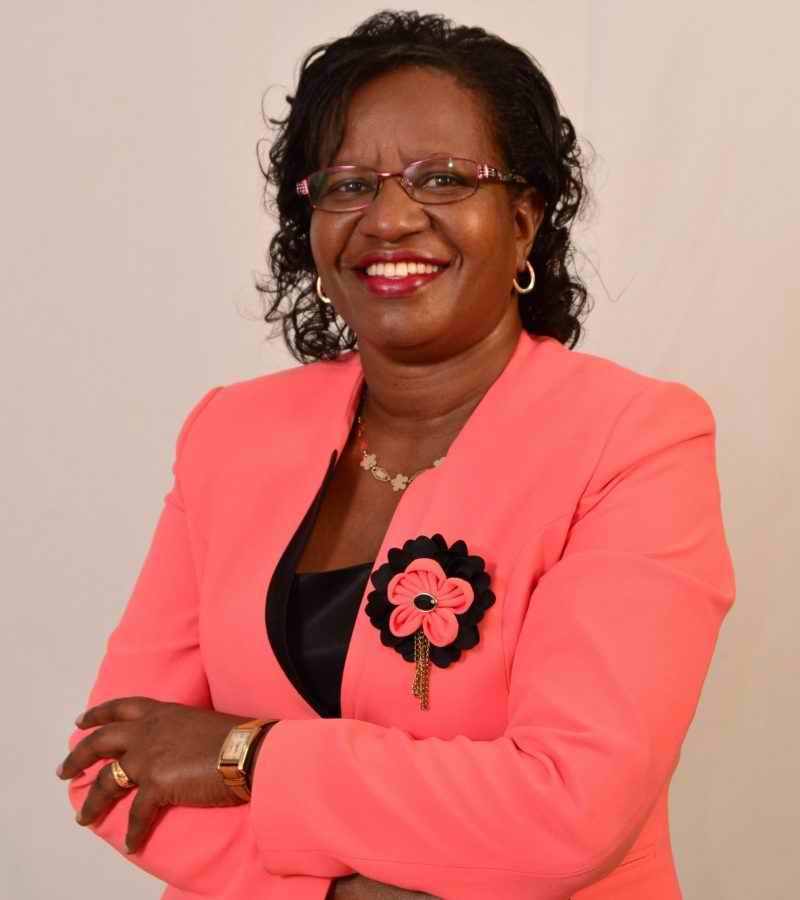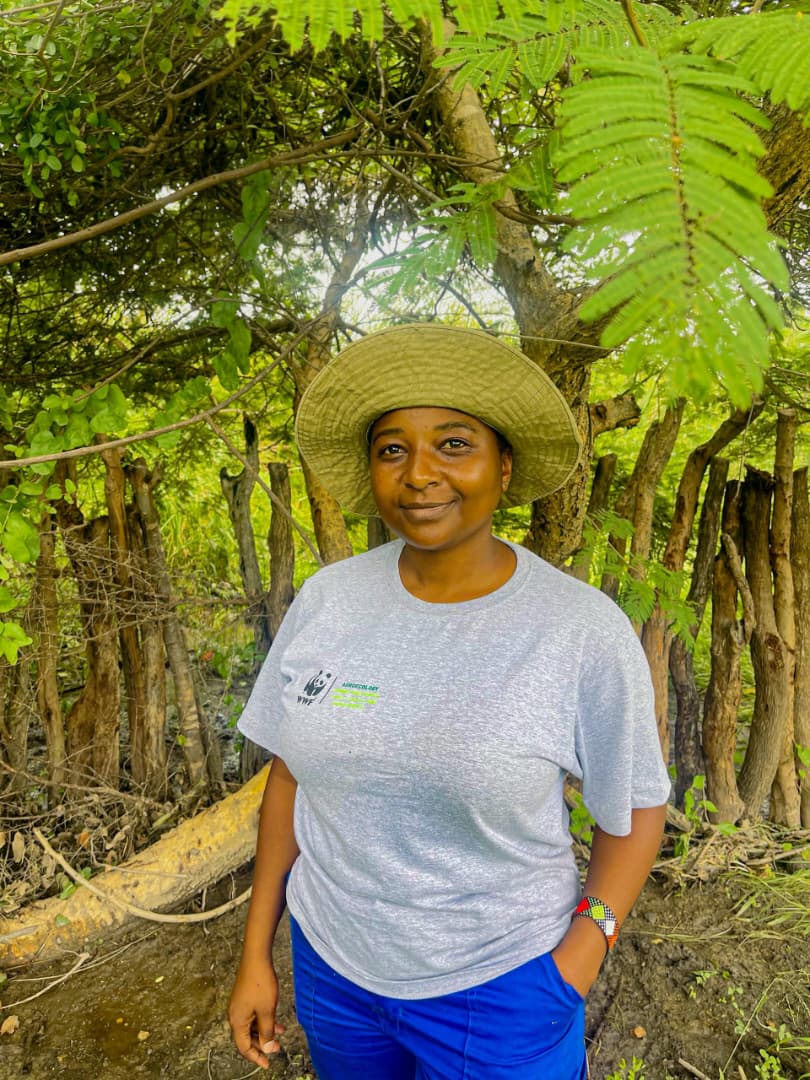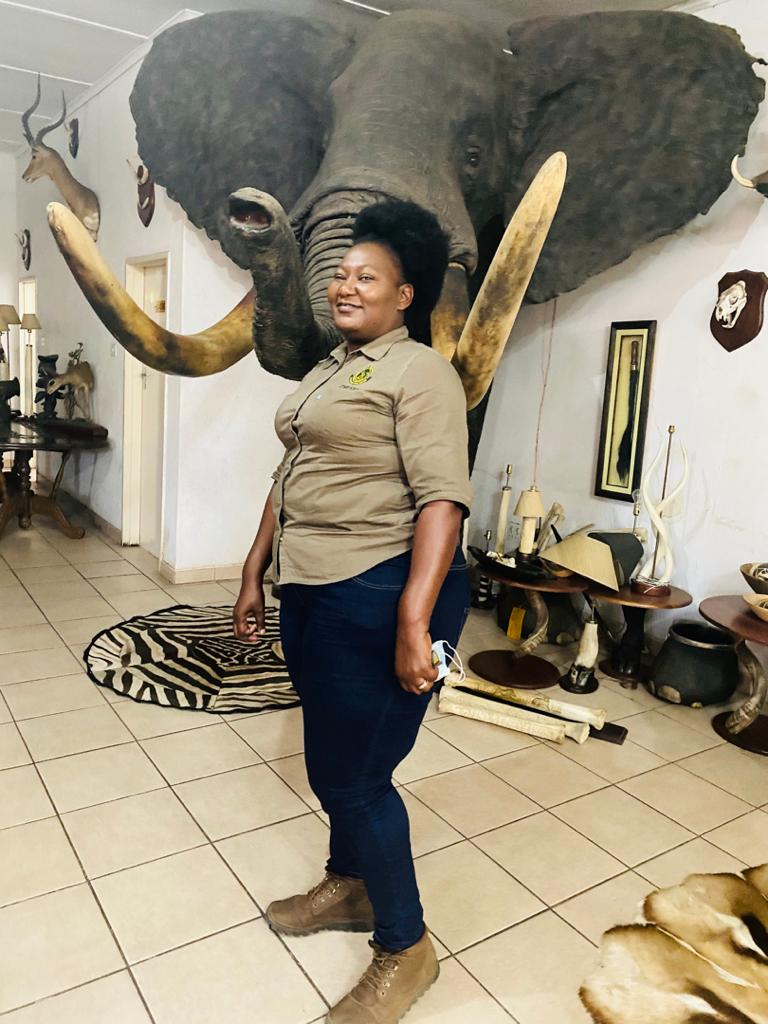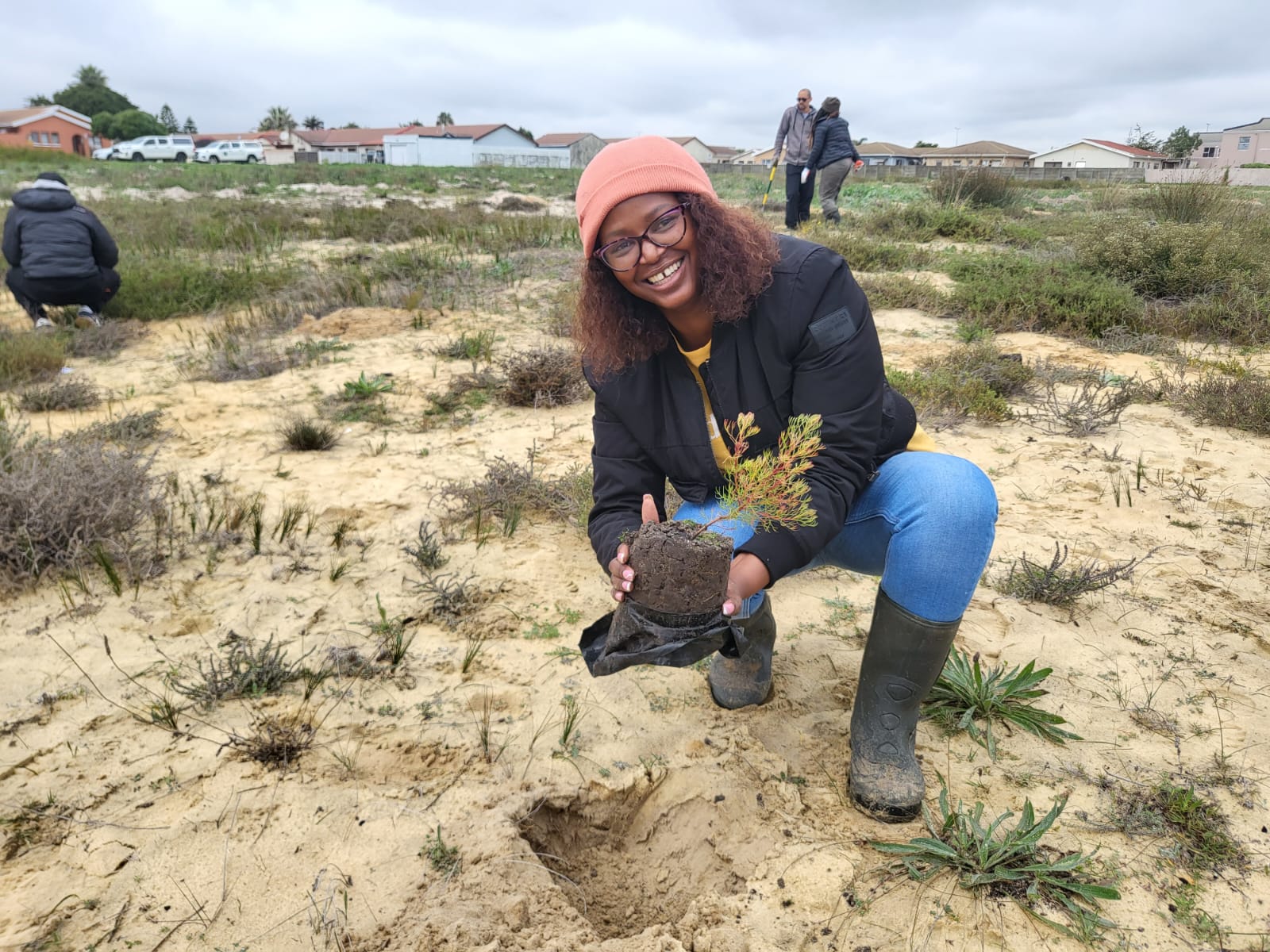I would like to see young people living purpose-driven lives.
Compelled by a passion for a purpose-driven life, Margaret Waithaka has worked in the field of career guidance and advice for over ten years now.
She is a national panel member of the Kenya Institute of Curriculum Development (KICD), championing career development as part of pertinent and contemporary issues in the Competency-Based Curriculum.
She has co-authored Discover Your Career; a workbook approved for use in secondary schools. She writes in the local press and online platforms on careers.
A certified career counsellor, Margaret gives talks and trains young people, teachers, youth workers, and parents on career guidance matters. She consults for various national and international institutions.
She is a member of the Career Development Institute, UK and the founding board chair of Career Guidance Institute (the Association of Career Guidance Practitioners in Kenya).
Margaret shares, with Damaris Agweyu, her journey towards finding her true north and helping others do the same for themselves.

"Follow your passion, and success will follow," you are a huge proponent of this precept.
Huge. But its more than just following your passion blindly; it's about aligning your innate talents with the skills you acquire over time to create a sustainable and fulfilling career. I am passionate about helping young people find that perfect balance.
Did you receive any career guidance when you were young?
No. Like any other girl who grew up in the village, I believed that any career that would give you a decent income was the key to success; following one's passion was not something people talked about. Interestingly, I toyed a lot with a career in hospitality or any service industry.
After my high school exams, I got called to Moi University to pursue a BA degree. My placement letter came with a pamphlet with information about a new university course: Bsc Information Sciences. It was the first time I had heard of it. The pamphlet explained the nature of people who would excel in this field, the kinds of jobs they could potentially do and the places they could work. I remember reading that pamphlet with my friend, who then told me, "Maggie, this is so you!"
She was right.
When the window of opportunity to change my course presented itself, I took it. That pamphlet was the only career guidance that I got. I ended up majoring in publishing and book trade, and my internship was in book publishing.
What was your first job?
After graduating, as is usually the case, I was ready to accept any job that came my way. Mine was selling advertising space for The Kenya Times newspaper. After some time, I realized that while I was good at it, I didn't enjoy it. So I moved to the editorial department, where I would be writing and editing feature stories. I later went on to work for The People newspaper as a sub-editor then moved to The Standard Newspaper, where I was the first Saturday magazine editor.
After a couple of years, I was poached by a PR firm. Although my job would be very different from anything I had ever done, I trained myself to become the best that I could be. I loved my job. By the time I was leaving formal employment, I was the PR manager at Communications Concepts Limited.
Why did you leave?
In 2002, the business was struggling. The first department to close down was research; the second was PR. When we were made redundant, I was pregnant with my second child. But before I went on maternity leave, I reached out to some of the clients whose accounts I had been handling directly. I wanted to start my own firm; were they willing to bet on me and become my first clients? I proposed. Two of them agreed- Marshalls and DHL. And that is how Square Gold Limited was born. I worked hard to land a few more clients, and by the time I was going on leave, I had a fully operational office.
Much later, I would leave the world of PR and cross over to the Education sector. This, I discovered, would be my true north. I am now fully immersed in the career guidance and development space. Due to my passion in the sector, many people who know me today don't think I've ever done anything else.
How did you discover that this was your true north?
On a subconscious level, I always wanted to give back to the community. And I have always felt that the best time to help people is when they are young; in this case, they can become self-reliant as adults. So when my PR firm was making some good money, we hived off some of it to start a foundation. We called it Square Gold Education Foundation.
We would seek out and educate needy and bright children. I found this work deeply fulfilling. So much so that I was no longer focusing on my PR company! When I realized what was happening, I paired up each of the students I had with donors and individuals who could carry on with the task.
I also decided I wouldn't do the work under a foundation but rather, as a department under my company. We called it Erevuka Kuwa Sonko. Meaning attain knowledge and grow yourself. We brought together several people who work with young people to help out. We would ask the children, "What can you do well?" They didn't know. "What business can you do?" No idea. These answers led me to believe that there must be something that is lacking in the education system.
Young people are continually urged to get into entrepreneurship and become job creators. But when it comes to success rates, the stats tell a different story. Out of every ten businesses, only two will survive. So, where is the problem? I did some research and found that over 75 per cent of Kenyans are in the wrong careers. People are not getting career guidance.
And so careers became the heart of Erevuka Kuwa Sonko, a name which, for obvious reasons, was later changed to Erevuka Kuwa Bingwa. The idea is that you can become the king of your jungle. When you know what your strengths, abilities, and interests are, you can excel in whatever it is that you choose to do or what you are wired to do. Now I was telling people the what, but not the how.
I went to visit my sister in the UK, who told me about a tool she had used to assess and determine what career would be best suited for her. That was it! This was what was lacking in our country. I was later introduced to a lady called Victoria Wainaina. She had this assessment tool. She also had a strong HR background which I lacked at the time. It made sense to partner with her on this journey. Together, we started a company called True North Career Map.
After some time, True North Career Map didn't work out, but we grew another company from that, Discover Your Career. The idea is first to find out your interests and abilities through psychometric assessments. And then, based on the results, we plug in and give advice on which career path will serve you best.
Eventually, Vicky went back to formal employment, but my dream continued. She introduced me to my current partner Mercy Gichohi. Mercy had been a teacher for 20 years and had just started her PhD in education management. She knew the market; she had the skills. I had been approaching things from a research point of view, and here she was with all the practical experience. Our connection was a godsend. We hit it off immediately and got to work.
The gaps in our education system became very clear, and one of the biggest ones is careers. Mercy and I came up with job shadowing programs for young people and started training teachers in each county about career guidance. But at the end of each training, they always said they needed more training. We realized there was still something missing. And it was around this time that we formed the College of Career Guidance and Development.
Meanwhile, back at the PR firm?
Square Gold? It was stagnating. Over time, I've learned every skill you learn can be brought forward to help you with something else in the future. My Dean at the University taught me that, and I have always known it from the time I graduated.
When I realized I was not achieving much in Square Gold, we stopped doing corporate PR and moved into development areas. We partnered with a global partner VisionRI to offer communication solutions in different sectors in Africa. I offer consultancy while experts do the work. That is where the company is at now. I am no longer involved in its day-to-day, but I brought all skills I had learned in PR into what I do today.
Now I am fully immersed in the Career Guidance space. It is rewarding work, but it is also demanding work. We have a lot of ground to cover.
I found, for instance, that in markets like the US, UK and Australia, they have career guidance as a course like any other. Students can study it from the certificate level all the way to the PhD level. America has had career guidance as a course for the last 100 years! Meanwhile, here in Kenya, it's an afterthought. Teachers are told, "today, you will be a career teacher on top of your other duties". Where will the teacher find the time? Do they have any training or even interest? Do they have resources? Most of the time, the answer to these questions is no.
I joined the Career Development Institute in the UK and got lots of information and help. Eventually, Mercy and I came up with a curriculum benchmarking from what other countries were doing. The curriculum I currently in KICD for review and validation to meet certain thresholds for a diploma course.
Do you believe this will help solve the career misalignment problems?
Definitely! After the Class 8 (KCPE) results were announced, my daughter cried her heart out because she did not get 400marks. Her grade was an A-! Is she the only one? No!
Our education system is about grades, not competencies. You get a B, and you're a failure; you don't get into university, you're a failure. I've had parents telling me their children with Ds should join a college, just to get a diploma that will take them to the university.
Everything revolves around the university. But how many people are tarmacking in this country, even though they went to university? Do we ever stop to think that everyone is wired differently and not all are interested in academic pursuance? Professional career guidance is what will give our youth and the country competitiveness. People need to play to their strengths!
There are other pathways away from the university. Nobody is telling these children about TVET courses, apprenticeships and other post-secondary schools’ options. The guidance is lacking. But more importantly, it needs to be of high quality.
I looked at the associations I was part of (CDI-UK) and saw how they have professionalized and standardized the practice. I wanted to do the same here; have an association that acts as a regulatory umbrella body, something like LSK or PRSK but for career guidance. And that is how we launched the Career Guidance Institute (CGI) last year as an association of career guidance practitioners to advance career guidance and career guidance best practices in KenyaAs its torchbearer, by the time I retire, I want to feel that, on the one hand, the practice has taken route in the education ecosystem, we have practitioners who are trained and grounded, and on the other hand, students know what they want to do and are well guided throughout their school life and during transitions.
So now the College of Career Guidance and Development and Discover Your Career are members of the association. We also have individuals who work with the youth as members, teachers, schools, as members—the idea to look at career guidance through the same lens. We learn from other countries, pick what is relevant to our situation, discard what isn't and, ultimately, write our own stories.
The government has decreed that every college and university must have a career department. And now, we want these career departments to be staffed with professionals. CGI is like the ombudsman that makes sure we do things in the right way.
Do you think that the new competency-based curriculum (CBC) will also address some of these issues?
Yes. And I am not just saying this because I am part of the panel at KICD (Kenya Institute of Curriculum Development). This new education system is genuinely progressive. It is talking about nurturing every learner's potential. It is not just about books anymore; it's about actively involving children in the learning process and it starts all the way from PP1.
By grade 7, careers will be taught as a subject where students can learn and understand the various pathways available. In grade 9, they will be choosing their paths. It will be great!
The gap that has always been there and still comes into play is parental involvement. Children go home with homework and whether they do it or not is not a problem for many parents. For the ones who come from affluent families, it is the childminders who take care of diaries and homework.
Implementation will also be a challenge if teachers aren't trained properly.
This is the biggest challenge. Expecting teachers to change what they have known for years in a few days is a tall order. The good news is that many in KICD who are very passionate about CBC. Teacher training programs have been set in place. All new teachers will be trained from early learning through to high school, but it will take time for those who are used to the old way of doing things.
Ten years from now, many of today's mainstream careers will no longer exist. What role do you see career guidance taking in this case?
We have over 30,000 careers globally, so there are still going to be many options to go round. And there are some careers that technology can never replace- especially those that involve creativity. Creativity is human; robots can't take replace that. Of course many careers will change or even become obsolete along the way, while others will be created.
But more importantly, it is upon career guidance experts to adapt to the circumstances and help young people learn to re-engineer themselves. It's what we call continuous professional development.
Let's talk about the psychometric tests that determine viable career options for individuals. What happens if the test tells me I need to be in the arts, but I don't necessarily want to be there?
The test doesn't lie. It is scientific, validated and standardized; even if you repeat it, you will get the same results. We were all created differently, and your innate talents and passion don't change; skills, you can learn. Our tests tell us how you are wired, your unique you, and the career options you can thrive in based on your strengths and weaknesses.
We use the RIASEC model, which loosely categorizes people according to six personality types: Realistic, Investigative, Artistic, Social, Enterprising, and Conventional.
If you are 40 % artistic, a career in the arts will not be sustainable regardless of how strongly you feel that this is where you want to be; because anything below 60% is not high enough. However, if you are 80% realistic, a career in engineering will be sustainable.
We go wrong when we think that just because someone got an A, then its Law or Engineering, yet this person could be an amazing artist! But they get into Law, get bored, and get restless.
I had a student who got an A and wanted to do Finance. His parents said Finance is for C students; they wanted him to do Law. He went ahead and did it, but he didn't like it. He's not a reader, he's not persuasive, he's so structured!
Did he eventually get into Finance, or is he quietly suffering through Law?
After 2 years in law school, he finally moved to Finance, thankfully!
What do you hope to achieve with everything you are doing?
I would like to see young people living purpose-driven lives. People are blinded by money but let's think about the purpose of life. It's all in scripture- every creation needs somebody to take care of it. We need people to take care of the environment, people who will take care of others, people who will entertain us. We love watching movies and listening to music, but if we don't want our children to become musicians, who will create it?
All careers are for the good of the community; it is our differences that create a more wholesome society.
Any advice for older people who may find themselves currently misaligned with their careers?
It's never too late to change. Deep down, everybody knows if they are doing what is right for them. You can always start afresh. The skills you have acquired over time will still help you. I have seen people creating empires after 60 years when they found something they enjoyed. What matters is having the courage to change. Many people get too comfortable and lose that courage.





